Even the most loyal Australian could be forgiven for having a sense of foreboding at the approach of Australia Day. The national holiday has become a platform to denounce anything intended to inspire love of country and pride in its achievements.
Bunnings, the quintessential home a improvement store, provides a sorry example. It has done a roaring trade during the pandemic, yet far from feeling inspired to celebrate the great Australian values of home renovation, its Townsville store banned staff from wearing the national flag on their uniform, only reversing the decision when it sparked an uproar.
The National Australia Day Council’s ‘Reflect. Respect. Celebrate’ campaign advertisement bent over backwards to be inclusive with Australians of every hue, gender and religion declaring that ‘we are all part of the story’. Yet this well-intentioned and expensive effort to inspire national unity by adhering to woke pieties managed to offend the very people it was seeking appease. ‘Hey @cinemanova,’ tweeted ‘unaustralian native’, ‘we were made uncomfortable by the Australia Day ads that you are screening. This is highly inappropriate for mob to have to pay to sit through. I hope you reconsider.’ The trendy cinema caved in, in less than an hour, announcing that it would remove the ‘propaganda’.
Saputo Dairy made the same mistake. It thought it could placate an Aboriginal activist by changing the name of Coon Cheese, which he claimed was racist. The cheese is named after its inventor, Edward William Coon but Saputo announced last week that the product will henceforth be known as CHEER, hoping that the cheery name would bring that extra little bit of happiness into its consumers’ lives. No such luck. Anti-Coon campaigner Stephen Hagan wanted ‘something a bit more inclusive of First Nations people,’ and was grumpy that he hadn’t even been consulted. The idea that Aboriginal activists should be consulted on the naming of cheese might seem far-fetched but who can doubt that if an Aboriginal ‘Voice to Parliament’ is achieved it would quickly lead to calls for a ‘Voice to Business’? After veto-ing ads and cheese, what next? Baby names?
When Australia Day honours are handed out, those, such as Professor Thomas Borody, who have shown inspirational courage, intelligence and persistence in standing up to the medical establishment and championing a safe, affordable treatment for Covid, which is saving hundreds of thousands around the world, are passed over. Instead, Shane Fitzsimmons, the state’s former Rural Fire Service Commissioner was named NSW Australian of the Year after he burnished his green credentials during the bushfires by claiming that it was climate change that prevented hazard reduction rather than the war waged on the timber industry by environmentalists. Fitzsimmons used the platform to further enhance his woke credentials by calling for an Indigenous translation of the national anthem to be added on. It’s a nice idea but like his thoughts on climate change, it is factually challenged. According to The Australian Institute of Aboriginal and Torres Strait Islander Studies there are more than 250 Indigenous languages, including and under within them 800 dialects. How could anyone choose between them? There are two versions just in Dharug, the language of the Dharawal people in Sydney. The English rendition of one version begins, ‘We Australian mob are going to have a good dance, We good young fellows, Good earth and speared a lot of wallabies…’ You don’t have to be clairvoyant to see that it wouldn’t be long before the Green woke vegan feminists were sharpening their pencils to make editorial changes. Those who presume to speak on behalf of Indigenous Australia always act as if everyone shares their radical left-wing views. In fact, almost three- quarters of all Aboriginal people identify as Christians. Given that more than 60 per cent of non-indigenous Australians also identify as Christians, faith might provide an easier path to reconciliation than politics if it weren’t for the inconvenient truth that Christianity is abhorred by the ruling elite.
In 2011, 50 Christian schools of different denominations horrified the Green Left secular establishment when they sang a version of the anthem penned by a Sri Lankan immigrant who wrote a second verse that commenced, ‘With Christ our head and cornerstone, we’ll build our nation’s might’. Peter Garrett, who was then the federal Labor Minister for Education, and Warren Pearson, chief executive of the National Australia Day Council admonished the schools for changing the lyrics and the Australian Parents Council and Federation of Parents and Citizens’ Association of NSW called for the version to be banned.
The prime minister’s decision to change the words of the national anthem from ‘young and free’ to ‘one and free’ was meant to acknowledge Australia’s ancient indigenous history and yet nothing makes a nation seem more teenage than the perpetual embarrassment that the elite manifest at any mention of the motherland. The federal member for Warringah independent Zali Steggall has called for a minute’s silence to be held on Australia Day to acknowledge its sombre meaning for Indigenous Australians. But why stop at a minute? Couldn’t Ms Steggall be silent for the rest of her parliamentary term?
Got something to add? Join the discussion and comment below.
Get 10 issues for just $10
Subscribe to The Spectator Australia today for the next 10 magazine issues, plus full online access, for just $10.
You might disagree with half of it, but you’ll enjoy reading all of it. Try your first month for free, then just $2 a week for the remainder of your first year.


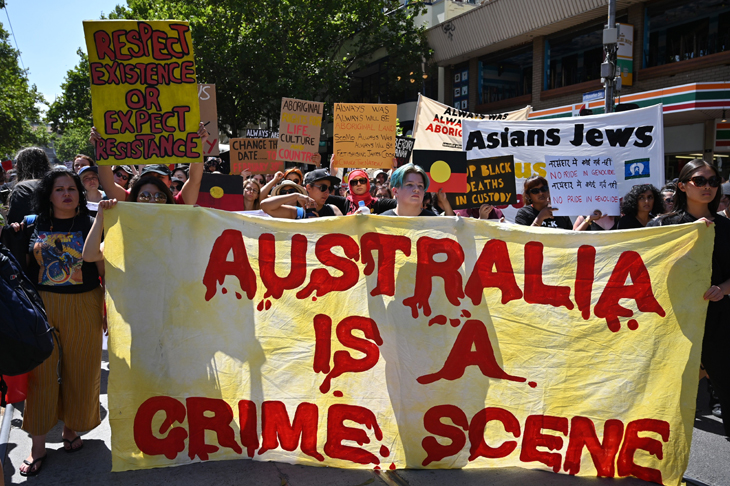
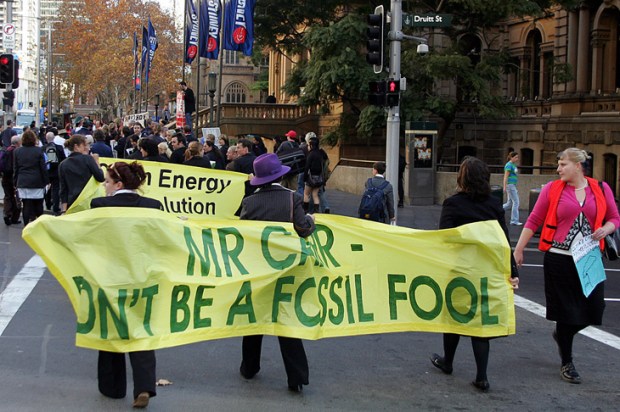

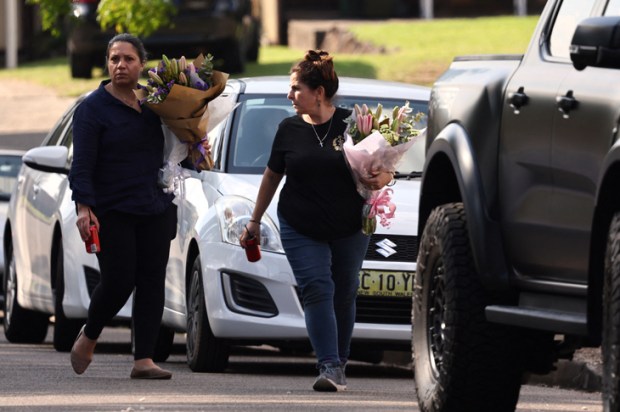
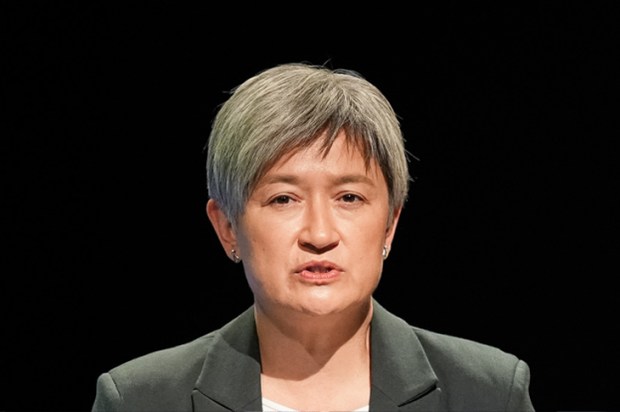
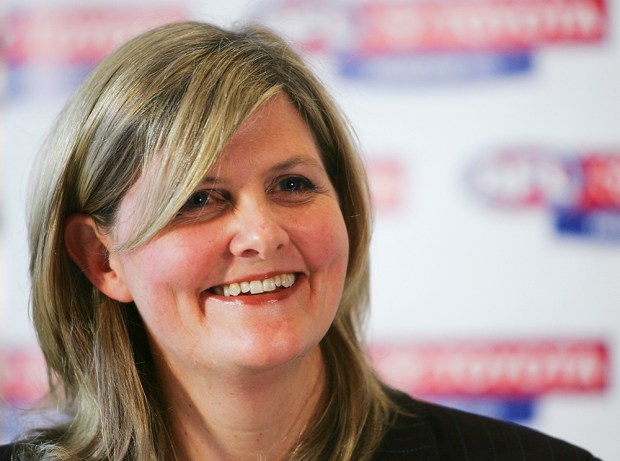
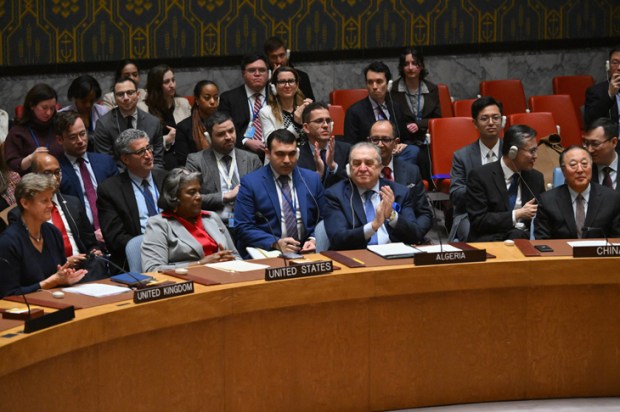






Comments
Don't miss out
Join the conversation with other Spectator Australia readers. Subscribe to leave a comment.
SUBSCRIBEAlready a subscriber? Log in